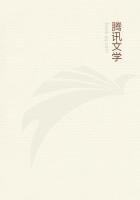Andrew Amos I took the train three days later from King's Cross to Edinburgh. Iwent to the Pentland Hotel in Princes Street and left there a suit-case containing some clean linen and a change of clothes. I had been thinking the thing out, and had come to the conclusion that Imust have a base somewhere and a fresh outfit. Then in well-worn tweeds and with no more luggage than a small trench kit-bag, Idescended upon the city of Glasgow.
I walked from the station to the address which Blenkiron had given me. It was a hot summer evening, and the streets were filled with bareheaded women and weary-looking artisans. As I made my way down the Dumbarton Road i was amazed at the number of able-bodied fellows about, considering that you couldn't stir a mile on any British front without bumping up against a Glasgow battalion.
Then I realized that there were such things as munitions and ships, and I wondered no more.
A stout and dishevelled lady at a close-mouth directed me to Mr Amos's dwelling. 'Twa stairs up. Andra will be in noo, havin' his tea. He's no yin for overtime. He's generally hame on the chap of six.' I ascended the stairs with a sinking heart, for like all South Africans I have a horror of dirt. The place was pretty filthy, but at each landing there were two doors with well-polished handles and brass plates. On one I read the name of Andrew Amos.
A man in his shirt-sleeves opened to me, a little man, without a collar, and with an unbuttoned waistcoat. That was all I saw of him in the dim light, but he held out a paw like a gorilla's and drew me in.
The sitting-room, which looked over many chimneys to a pale yellow sky against which two factory stalks stood out sharply, gave me light enough to observe him fully. He was about five feet four, broad-shouldered, and with a great towsy head of grizzled hair. He wore spectacles, and his face was like some old-fashioned Scots minister's, for he had heavy eyebrows and whiskers which joined each other under his jaw, while his chin and enormous upper lip were clean-shaven. His eyes were steely grey and very solemn, but full of smouldering energy. His voice was enormous and would have shaken the walls if he had not had the habit of speaking with half-closed lips. He had not a sound tooth in his head.
A saucer full of tea and a plate which had once contained ham and eggs were on the table. He nodded towards them and asked me if I had fed.
'Ye'll no eat onything? Well, some would offer ye a dram, but this house is staunch teetotal. I door ye'll have to try the nearest public if ye're thirsty.'
I disclaimed any bodily wants, and produced my pipe, at which he started to fill an old clay. 'Mr Brand's your name?' he asked in his gusty voice. 'I was expectin' ye, but Dod! man ye're late!'
He extricated from his trousers pocket an ancient silver watch, and regarded it with disfavour. 'The dashed thing has stoppit.
What do ye make the time, Mr Brand?'
He proceeded to prise open the lid of his watch with the knife he had used to cut his tobacco, and, as he examined the works, he turned the back of the case towards me. On the inside I saw pasted Mary Lamington's purple-and-white wafer.
I held my watch so that he could see the same token. His keen eyes, raised for a second, noted it, and he shut his own with a snap and returned it to his pocket. His manner lost its wariness and became almost genial.
'Ye've come up to see Glasgow, Mr Brand? Well, it's a steerin'
bit, and there's honest folk bides in it, and some not so honest.
They tell me ye're from South Africa. That's a long gait away, but Iken something aboot South Africa, for I had a cousin's son oot there for his lungs. He was in a shop in Main Street, Bloomfountain.
They called him Peter Dobson. Ye would maybe mind of him.'
Then he discoursed of the Clyde. He was an incomer, he told me, from the Borders, his native place being the town of Galashiels, or, as he called it, 'Gawly'. 'I began as a powerloom tuner in Stavert's mill. Then my father dee'd and I took up his trade of jiner. But it's no world nowadays for the sma' independent business, so I cam to the Clyde and learned a shipwright's job. I may say I've become a leader in the trade, for though I'm no an official of the Union, and not likely to be, there's no man's word carries more weight than mine. And the Goavernment kens that, for they've sent me on commissions up and down the land to look at wuds and report on the nature of the timber. Bribery, they think it is, but Andrew Amos is not to be bribit. He'll have his say about any Goavernment on earth, and tell them to their face what he thinks of them. Ay, and he'll fight the case of the workingman against his oppressor, should it be the Goavernment or the fatted calves they ca' Labour Members. Ye'll have heard tell o' the shop stewards, Mr Brand?'
I admitted I had, for I had been well coached by Blenkiron in the current history of industrial disputes.
'Well, I'm a shop steward. We represent the rank and file against office-bearers that have lost the confidence o' the workingman. But I'm no socialist, and I would have ye keep mind of that. I'm yin o'
the old Border radicals, and I'm not like to change. I'm for individual liberty and equal rights and chances for all men. I'll no more bow down before a Dagon of a Goavernment official than before the Baal of a feckless Tweedside laird. I've to keep my views to mysel', for thae young lads are all drucken-daft with their wee books about Cawpital and Collectivism and a wheen long senseless words I wouldna fyle my tongue with. Them and their socialism!
There's more gumption in a page of John Stuart Mill than in all that foreign trash. But, as I say, I've got to keep a quiet sough, for the world is gettin' socialism now like the measles. It all comes of a defective eddication.'
'And what does a Border radical say about the war?' I asked.
He took off his spectacles and cocked his shaggy brows at me.














